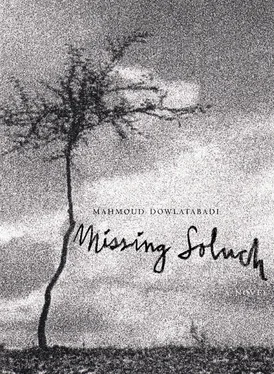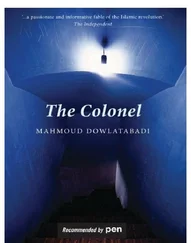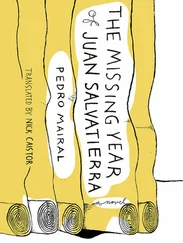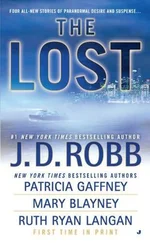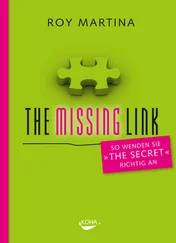“So the owner is now actually Mirza Hassan, yes?”
“Ah … that’s what they say.”
“And he’s planning to take the role of the overlord of the village, yes?”
“Probably. Most likely! But this is where he’s stuck! What lands will he be the lord of? The barren wild lands? Ha! That’s a difficult job. His eyes are on the lands owned by my son and by my nephew Zabihollah, but he’s stuck there as well! The lands aren’t all contiguous. There are bits and pieces here and there. You want to know how much it will cost to distribute whatever water they manage to pump to these scattered bits of land? A water pump! All of the village’s money was collected by these three or four people and they’ve thrown it all at this heap of scrap metal — and let’s not forget the money they borrowed from the government! We’ll see a day when they can’t afford the pants on their legs!”
Right or wrong, Karbalai Doshanbeh was mixing his hopes for the future into his predictions, which were no doubt stained by both envy and spite. They were wishes for the failure of others. If these others were to fail miserably, then he would be able to protect his sense of superiority. There are those who establish their own standing through the misery or degradation of others. In a thousand ways they say, “Don’t move, so that I can stay ahead of you even if I’m standing still!” These kinds of people, given that they’re stuck and frozen at a specific point, can’t imagine any way ahead. Full of spite, they’re like snakes sitting on the road. And although sometimes the road may indeed end in the point that they have predicted, one cannot consider their predictions as perspicacious. What they foresee is essentially a reflection of their envy, even if it contains scraps of the truth as well. What lies in their hearts is jealousy, enhanced by the fear of losing their position.
To Karbalai Doshanbeh, it was as plain as day that his position was being eroded. He had been comfortable as long as people were in need of him. But whenever and however people found or established a different source of hope for themselves, he sensed a tremor shaking the ground beneath him. The grounds were shifting. He’d been feeling it again recently. The government loans were putting him out of business. And he had neither the instinct nor the craft to find another use for his money. He also lacked the courage to change his ways. Earlier, his lack of spirit and his narrow mind had prevented him putting his money, which he had raised from selling his camel herd, to productive use. He hadn’t even bothered to buy a drop of water from the canal, nor a handful of land. His son, Salar Abdullah, had inherited the land and water that he owned from his mother, in addition to a half-day allotment of water from the water lords. Slowly, Karbalai Doshanbeh had become like an old viper curled on the top of an ancient jug of money. His view perceived nothing but the handful of people whose lives were somehow caught up with his, the poor souls who were compelled to go to him to borrow a bit of money, the interest of which would eventually weigh on them and bend their backs even more.
But the situation was still changing. The larger landowners had, for one reason or another, sold their lands and water and had moved to the nearby towns. Many of the landless people had also set out on roads leading to distant towns and cities, and so were now no longer in need of Karbalai Doshanbeh. All that remained were the small landowners and those who had been able to continue to provide for themselves. These were the ones who were now making an effort to take up the roles of being landlords and leaders. They wanted to stay in the village, and to move up there. They wanted to clear a new path, and head out on it. There were others who were left in the middle. Those who, due to the low prices on the harvests, and the expense of paying for labor, had no choice but to make use of the tractor and thresher and the water pump in their fields. These people were tied to the land and had no choice but to stay. These were the people who had to struggle to make ends meet. But even they were no longer in need of Karbalai Doshanbeh’s services. They’d found a new saint to protect them. A new saint had been offered them, and they now sought their protection from it: the government. And Mirza Hassan was on the vanguard of this new idea and worked day and night for it. He ran from one governmental office to another, and from one governmental official to one or another bank. From one city to another, from one province to another. From Gonbad to Gorgon to Mashhad and back to Zaminej, across the desert. He was like a sword that cut through everything, engaging with people far and wide to get his work done.
“You remember when this newcomer Mirza Hassan used to be a sugar thief, Sardar?”
“Of course I remember!”
“Even though my own son is now his partner, I can’t tell a lie about him! No, I’m no fool! Whose rope is he using to pull water from the well?”
“So why don’t you join them? You could put all your money to some use! Why not partner with them? After all, you don’t want to take your money to the grave with you!”
“What money? Ha! Money! Are you kidding me? Do you think I have any money left?”
Mergan set the teacups on a tray and took the handkerchief of dates from beside the cabinet and brought them over.
The Sardar said, “And put a cup out for Abbas!”
Karbalai Doshanbeh sipped from his cup and sucked at the date through his useless teeth. He took out the date seed, sized it up, and said, “That’s a nice date, Sardar! Top grade! You still eat dates like this?”
“I get a batch every month. Haji Mashi sets them aside for me himself. If I didn’t have them, I wouldn’t be able to keep up with my camels! That’s why I always have a batch of the best kinds of raisins, or the best grade of currants.”
“That’s good, very good! What memories!”
“And what do you eat, Karbalai? Dry bread and water, or do you chew on gold coins like a mouse?”
The Sardar wasn’t concerned about offending Karabalai Doshanbeh with something he had said. At heart, he wanted to hurt and to drive the old man from Mergan’s home using nothing but his sharp tongue. So he continued.
“Even during your days as a camel herder you never ate much! You always could find enough on other people’s plates to fill your own belly. You would drink your tea with the sugar or currants you were offered from the traders. You would butter your bread with the stock you were transporting with your camels! But what do you eat now? You don’t have the same people to go to as before. We don’t have the bankrupt landowners that you used to visit during meal times to ask them about their payments. So what can you be doing for food? It must be that you’re keeping yourself nourished by breathing the sweet smell of all your money! I’ve never known you to use even two seers of butter to soften your bread. So how much dry bread can you eat, man? Don’t you injure your intestines with all that dry bread you must be eating?”
Karbalai Doshanbeh retorted, “You’re sitting all high and mighty, blowing hot wind out your throat! For me, I’ve never heard of the poor shoeless Sardar having anything with his bread but watered-down yogurt! But friends and enemies alike both know that Karbalai Doshanbeh has one portion of the best sheep’s fat with his food every day!”
The Sardar spoke under his breath, “In different people’s houses, no doubt!”
“Why in different people’s houses? Nowadays, no one has anything to spare. I eat in my son’s house. My own son’s house!”
“Oh, so you eat in your son’s house? One would have to be deaf not to have heard that his wife has kicked you out of the house and that you’re living out in the storage shed!”
Читать дальше
